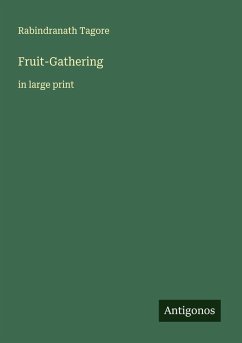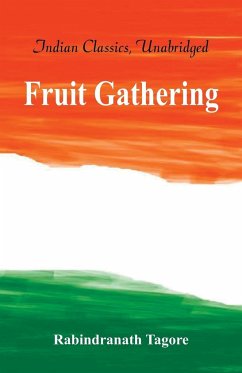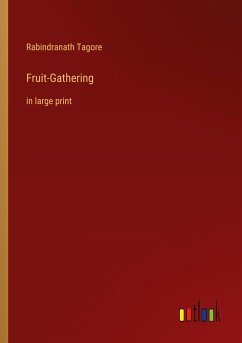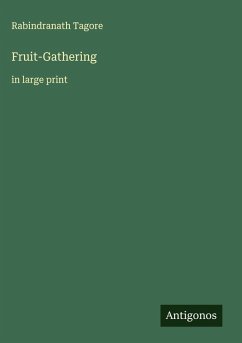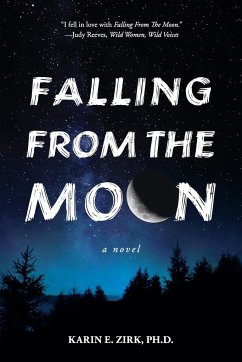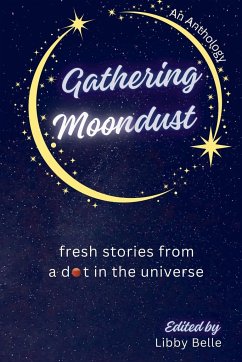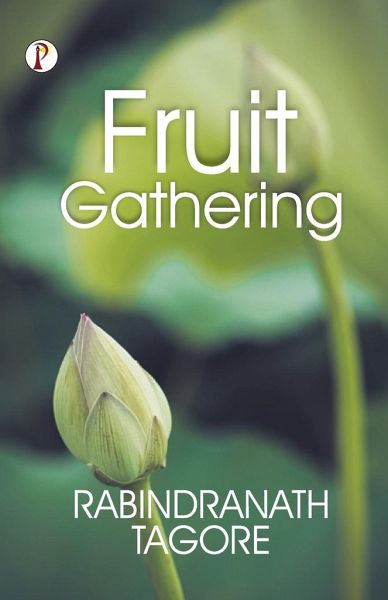
Fruit-Gathering
Versandkostenfrei!
Versandfertig in 1-2 Wochen
11,99 €
inkl. MwSt.

PAYBACK Punkte
6 °P sammeln!
Fruit-Gathering is a collection of 86 short poems by Rabindranath Tagore. First published in 1916, the book contains theme of the relationship between God and man, the atom and the cosmos. Tagore uses fruits and flowers to symbolise his spiritual and moral values towards the love for the creator. Rabindranath Tagore (7 May 1861 - 7 August 1941) was a Bengali short-story writer, poet, musician, composer, playwright, essayist and painter from India who was instrumental in transforming Indian art, especially Bengali literature and music, by introducing contextual modernism and new verses and pros...
Fruit-Gathering is a collection of 86 short poems by Rabindranath Tagore. First published in 1916, the book contains theme of the relationship between God and man, the atom and the cosmos. Tagore uses fruits and flowers to symbolise his spiritual and moral values towards the love for the creator. Rabindranath Tagore (7 May 1861 - 7 August 1941) was a Bengali short-story writer, poet, musician, composer, playwright, essayist and painter from India who was instrumental in transforming Indian art, especially Bengali literature and music, by introducing contextual modernism and new verses and prose. Both his prose and poetry were on varied topics and were considered to be magical and spiritual as visible in some of his noted works such as Gitanjali, Gora and Ghare-Baire. Referred to as the 'Bard of Bengal', his compositions were chosen as national anthems by India and Bangladesh while the Sri Lankan national anthem was inspired by his work. He became the first non-European to receive the Nobel Prize for Literature in 1913.






